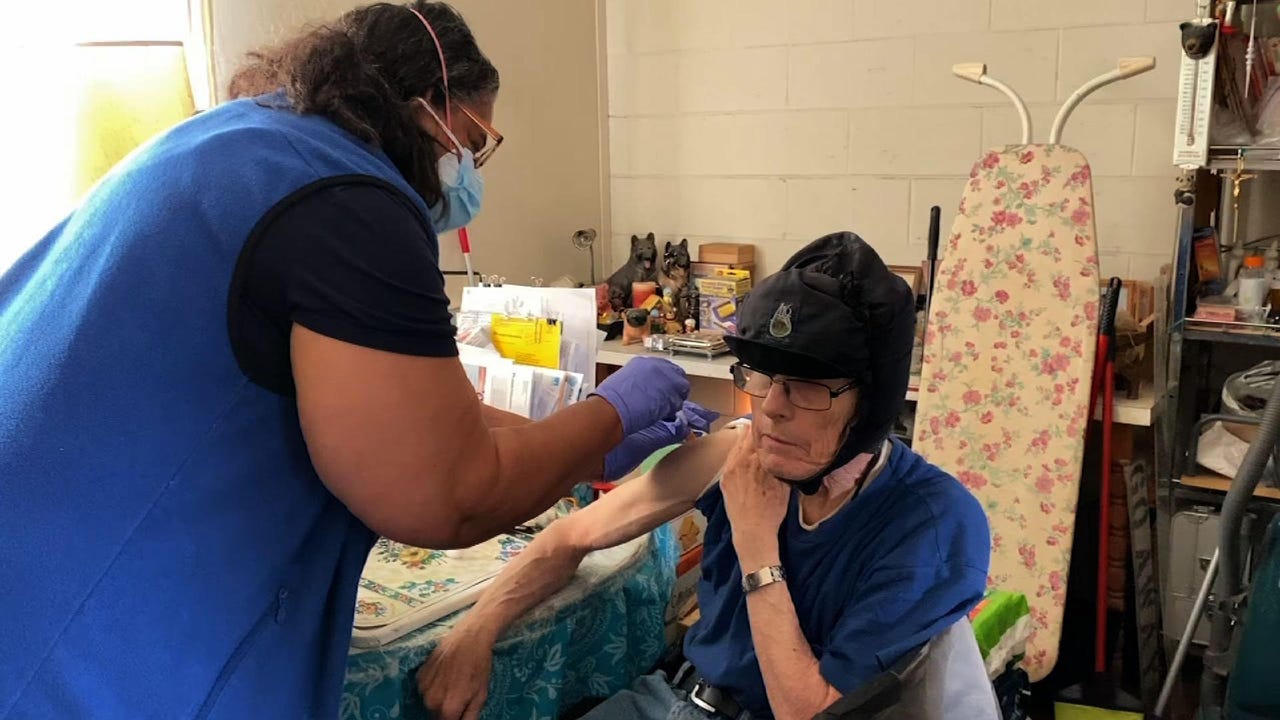You are here
Essential personal caregivers were locked out of nursing homes during COVID-19. Advocates are trying to enact legislation to allow them access.
Primary tabs
 Essential caregivers were locked out of nursing homes during COVID-19. Advocates from New York to California don't want it to happen again. Advocates from New York to California are pushing for laws that would require essential caregivers in nursing homes – even in a public health crisis. USA TODAY
Essential caregivers were locked out of nursing homes during COVID-19. Advocates from New York to California don't want it to happen again. Advocates from New York to California are pushing for laws that would require essential caregivers in nursing homes – even in a public health crisis. USA TODAY In many long-term care facilities, there are the regular visitors — family members who arrive daily to talk, clip nails, ensure meals don’t sit untouched, comb hair and, in quiet moments, hold hands.
Last summer, after several months of being locked out of facilities due to the coronavirus pandemic, the regulars grew increasingly concerned that their loved ones were suffering from prolonged isolation. Through Facebook and Twitter, hundreds, then thousands of these caregivers joined efforts.
From New York to Illinois to California, advocates have rallied state and federal lawmakers to enact laws that will permit such essential caregivers to enter long-term care settings, even during a public health emergency. They’ve organized email blasts, rallies, even a travelling yard sign campaign. Their efforts prompted New York to pass a bill this spring. Arkansas, too. About a dozen other states have had essential caregiving bills at least introduced.
“I think some of our elderly simply gave up. They were in for days, months, without anybody,” said state Rep. Julie Mayberry, a Republican legislator who sponsored the No Patient Left Alone Act that Arkansas passed in March. “I believe more people would be alive today if they had a loved one in there helping them.”
The bills in state legislatures go by various names but have similar bones. Under them, residents at long-term care settings would designate at least one person as an essential caregiver who could not be barred from visiting even during a pandemic. In turn, those designated caregivers would have to abide by the same safety protocols staff adhere to, such as symptom screening and masking.
For advocates such as Marcella Goheen, whose husband lives in a Manhattan nursing home, the laws offer a layer of security. Before them, there were no guarantees, she noted. “Now we’re protected to a certain extent.”
In California, where about 85,000 people live in 1,200 skilled nursing facilities and roughly 195,000 are in other long-term care settings, there’s been no traction for essential caregiver bills, though lawmakers are considering bills that would improve quality of care in nursing homes or require better government oversight.
Pat McGinnis, executive director of the California Advocates for Nursing Home Reform, believes legislators are being overly cautious in steering clear of caregiver mandates. “They’re more concerned about the spread [of disease] and that they’ll be held responsible if they allow designated caregivers in,” she said. “But I think it’s a lifesaving amenity for people in nursing homes.” ...



Recent Comments